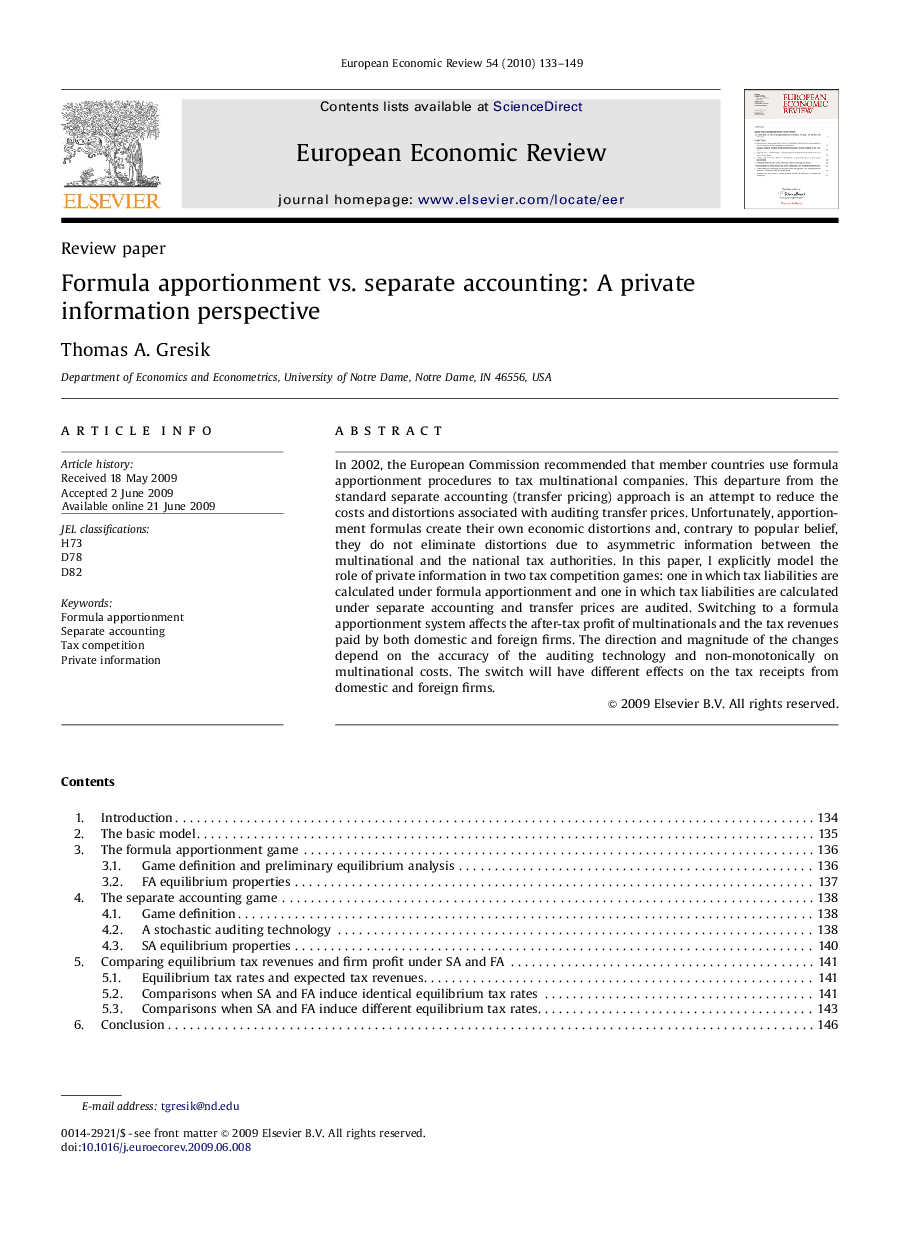| کد مقاله | کد نشریه | سال انتشار | مقاله انگلیسی | نسخه تمام متن |
|---|---|---|---|---|
| 5067437 | 1372595 | 2010 | 17 صفحه PDF | دانلود رایگان |

In 2002, the European Commission recommended that member countries use formula apportionment procedures to tax multinational companies. This departure from the standard separate accounting (transfer pricing) approach is an attempt to reduce the costs and distortions associated with auditing transfer prices. Unfortunately, apportionment formulas create their own economic distortions and, contrary to popular belief, they do not eliminate distortions due to asymmetric information between the multinational and the national tax authorities. In this paper, I explicitly model the role of private information in two tax competition games: one in which tax liabilities are calculated under formula apportionment and one in which tax liabilities are calculated under separate accounting and transfer prices are audited. Switching to a formula apportionment system affects the after-tax profit of multinationals and the tax revenues paid by both domestic and foreign firms. The direction and magnitude of the changes depend on the accuracy of the auditing technology and non-monotonically on multinational costs. The switch will have different effects on the tax receipts from domestic and foreign firms.
Journal: European Economic Review - Volume 54, Issue 1, January 2010, Pages 133-149